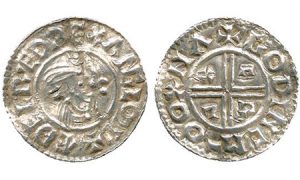
For any newcomers who have noticed that last week’s word was Pencil and assumed that there is some sort of alphabetical pattern to Word of the Week, let me disabuse you of that notion straight away. There is as much likelihood of next week’s word being Gobbledigook as there is of it being Rhubarb.
The fact that Penny just happens to have followed Pencil is a matter of pure random chance, although there is a hint of topicality about it.
First though, a brief diversion. I’m a big fan of the Double Decker (the chocolate bar not the bus) but something has happened to them lately. Either the manufacturer has failed to adapt the formula to mitigate for the melting effects of the long, hot summer or they’ve moved the factory to Jupiter, because I can’t remember the last time I saw a Double Decker that didn’t looked like it had been run over by its namesake.
I may be wrong, but until Cadbury’s send me some hard (but chewy) evidence, I will have to reassess my choice of chocolate. The last time I was faced with such a quandary was when the price of Mars Bars hit double figures. Imagine that, kids! A Mars Bar for pennies. (You sense I may be coming to the point.)
This was back in the days when you could see a Mars Bar with the naked eye. (I will get there, I promise). Carry on shrinking at this rate and it won’t be long before we’re absorbing them through the skin! Properly substantial though they were in the 1970s, 10 pence seemed like a hefty sum for a schoolboy with nowt more than a pocketful of half pees.
King Offa may not have been thinking about the confectionery needs of future schoolchildren when he introduced the penny into England in the 8th century AD. He had a dyke to pay for. But he did establish a successor to the Roman denarius (from where we acquired the ‘d’ for the pre-decimal penny) and gave it the name ‘pening’ or ‘penig’ from the Old Norse ‘penningr’ – that ‘gr’ at the end reflecting the sound Old Norsemen made when trying to fish out their pennies from down the back of the sofa.
The penny stood alone as the only denomination of English currency for 500 years, before bits of gold and farthings and halfpennies arrived in the 1200s and then the pound sterling, which was originally the weight of 240 silver pennies, joined the party. Then in 1971, in response to the nation’s failing ability to divide things by 12, the currency became decimalised and the system of 12d (pence) in a shilling, 20s in a pound gave way to the 100p in a pound that we know today.
Back then a penny could still buy you something meaningful (if you regard a couple of Blackjacks or Fruit Salad chews as meaningful) but the most common use of the penny since decimalisation has been to take it away; that is to set pricing just below a round pound – eg £1.99 instead of £2 – to hoodwink shoppers into thinking they’re getting a better deal than they really are. This practice was not originally instigated by shopkeepers as a cunning piece of sales psychology but as a tactic to keep their checkout staff honest. By pricing goods to require change, they ensured the assistant had to open the till, thus reducing the opportunity to pocket the note.
When I heard that the Bank of England was planning to do away with coppers, my first thought was that it’s probably about time. They cost the nation millions and serve very little purpose, other than pulling you over for nipping into the bus lane or failing to indicate at a roundabout.
Then I realised they meant copper coins. Never mind the economic arguments; if, after more than 1,200 years, the penny should disappear from British life, with it will go a whole raft of useful words and phrases, leaving us all the poorer. The plural ‘pence’, for a start, will have no basis. Children will think the 50 pence piece is named after the American Vice-President (‘Pence in the Pound’ is a headline waiting to happen). Terms like penniless, penny-pinching, penny loafer, penny whistle, “pound foolish, penny wise”, “take care of the pennies and the pounds will take care of themselves” and “spend a penny” will become meaningless within a generation.
Worse than that, I’ll have to find a new name for my cousin.


